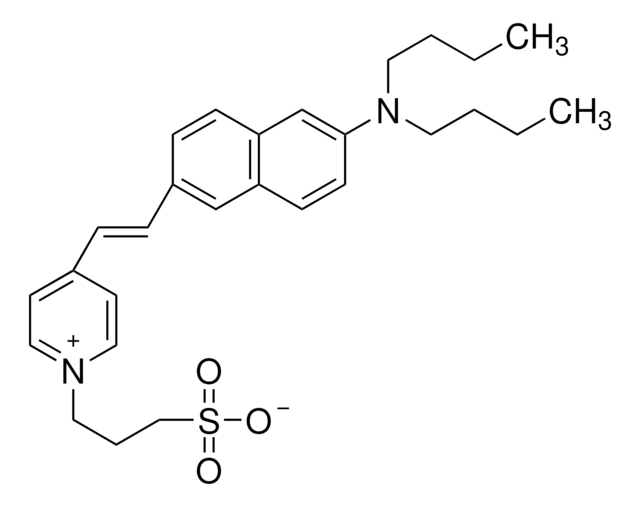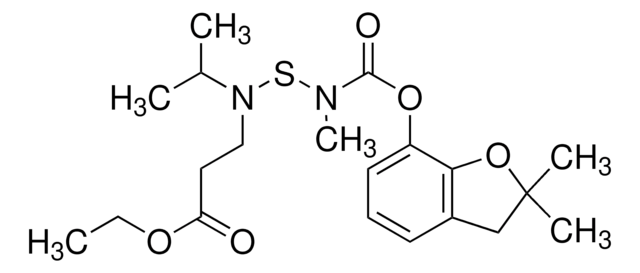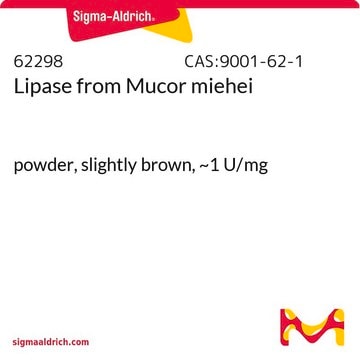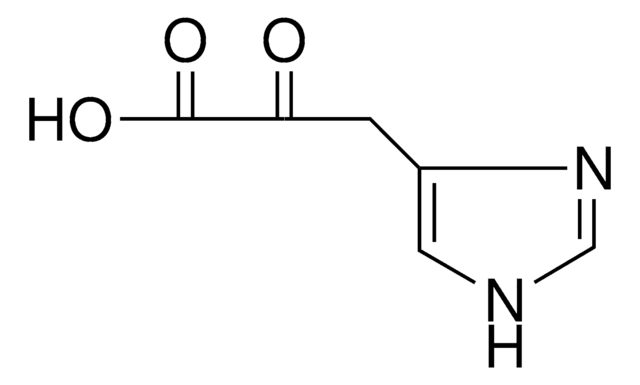44977
DISBAC2(3), Voltage Sensitive Probe
≥98% (HPLC)
Synonym(s):
5-[3-(1,3-Diethylhexahydro-4,6-dioxo-2-thioxo-5-pyrimidinyl)-2-propen-1-ylidene]-1,3-diethyldihydro-2-thioxo-4,6(1H,5H)-pyrimidinedione, Bis(1,3-diethylthiobarbituric acid)trimethine oxonol
About This Item
Recommended Products
Assay
≥98% (HPLC)
fluorescence
λex 535 nm; λem 560 nm in DMSO
suitability
complies for Infrared spectrum
storage temp.
−20°C
SMILES string
CCN1C(=O)C(\C=C\C=C2\C(=O)N(CC)C(=S)N(CC)C2=O)C(=O)N(CC)C1=S
InChI
1S/C19H24N4O4S2/c1-5-20-14(24)12(15(25)21(6-2)18(20)28)10-9-11-13-16(26)22(7-3)19(29)23(8-4)17(13)27/h9-12H,5-8H2,1-4H3/b10-9+
InChI key
VJYNRXFXHKIGLT-MDZDMXLPSA-N
Application
Storage Class Code
11 - Combustible Solids
WGK
WGK 3
Flash Point(F)
Not applicable
Flash Point(C)
Not applicable
Certificates of Analysis (COA)
Search for Certificates of Analysis (COA) by entering the products Lot/Batch Number. Lot and Batch Numbers can be found on a product’s label following the words ‘Lot’ or ‘Batch’.
Already Own This Product?
Find documentation for the products that you have recently purchased in the Document Library.
Our team of scientists has experience in all areas of research including Life Science, Material Science, Chemical Synthesis, Chromatography, Analytical and many others.
Contact Technical Service








